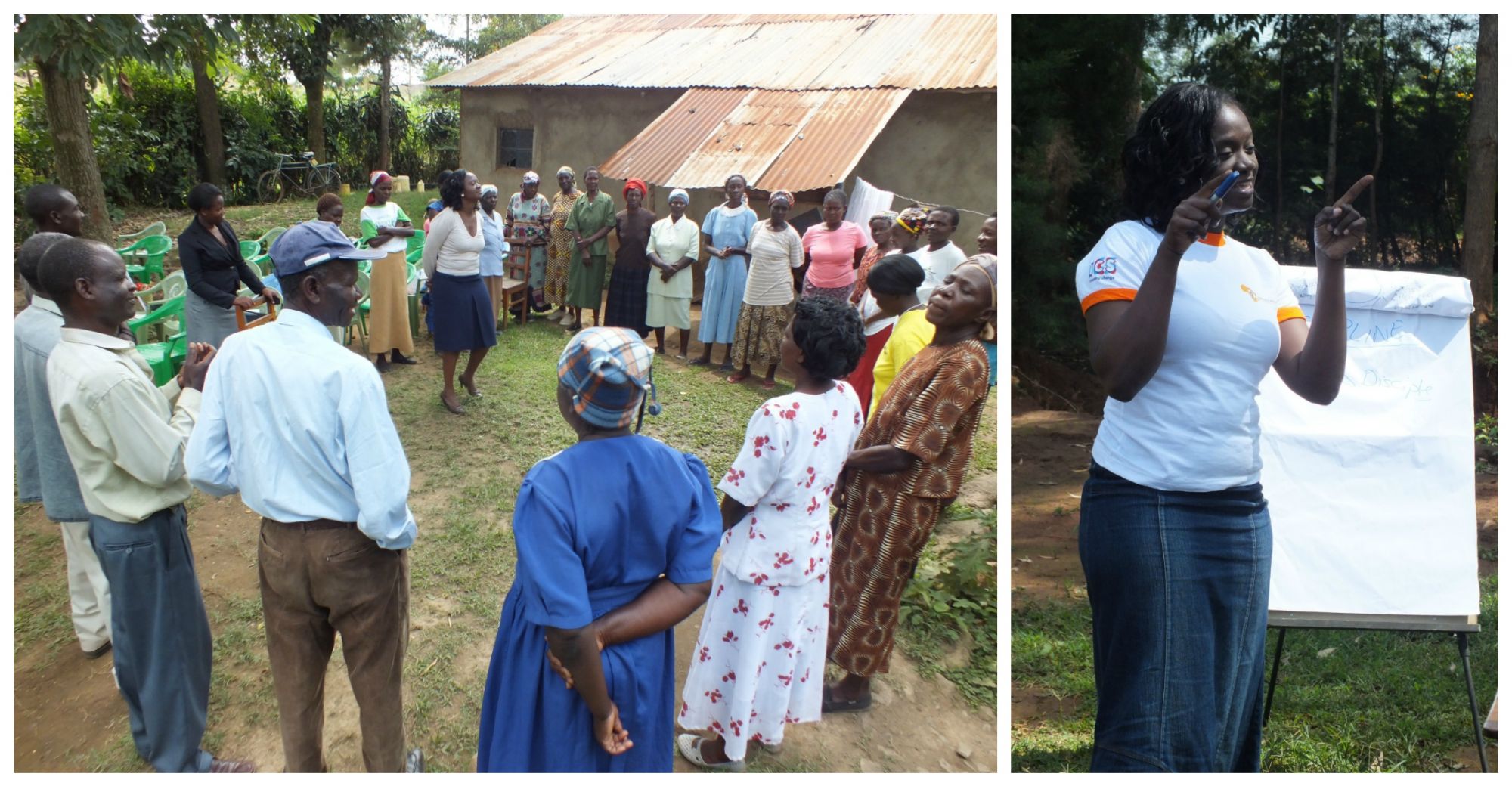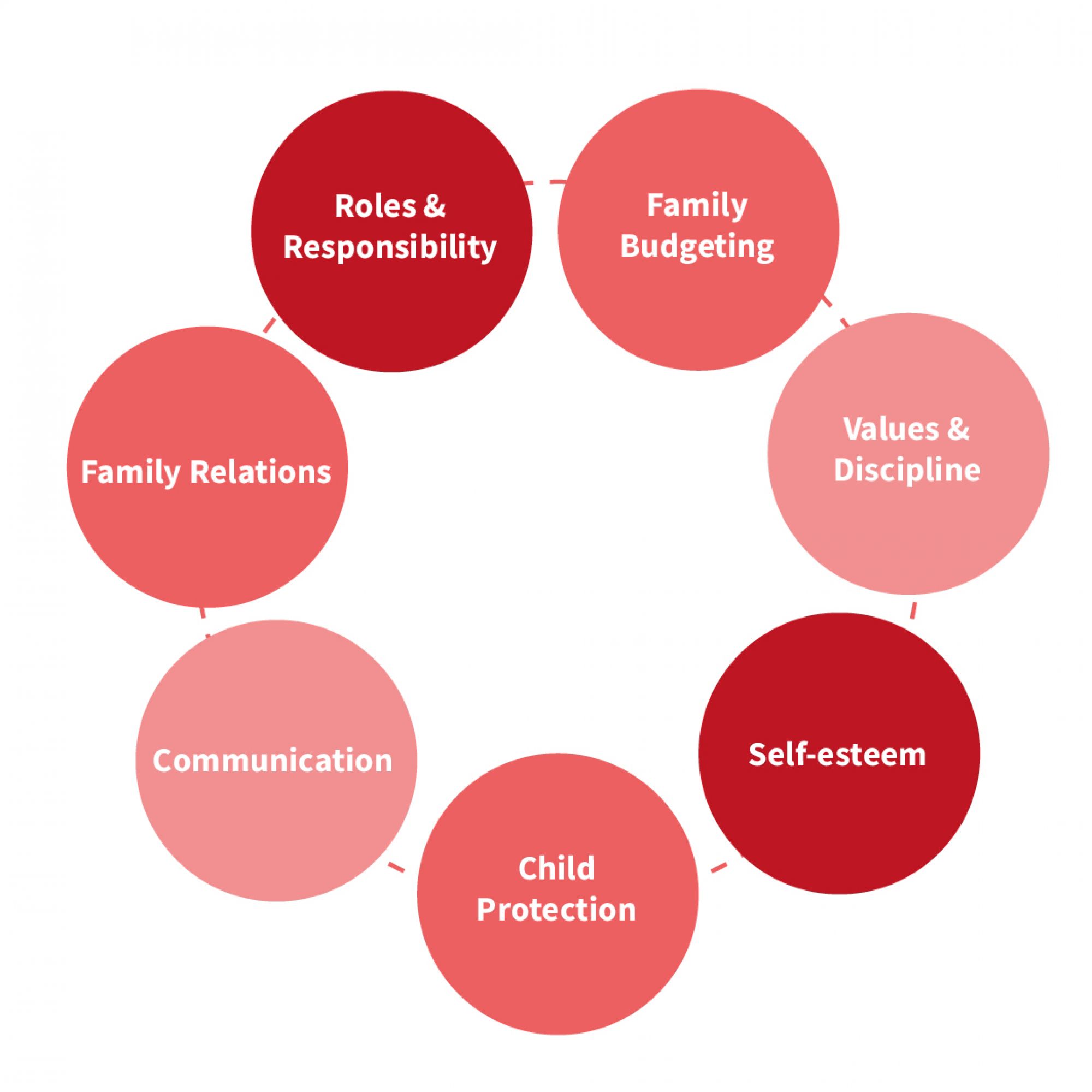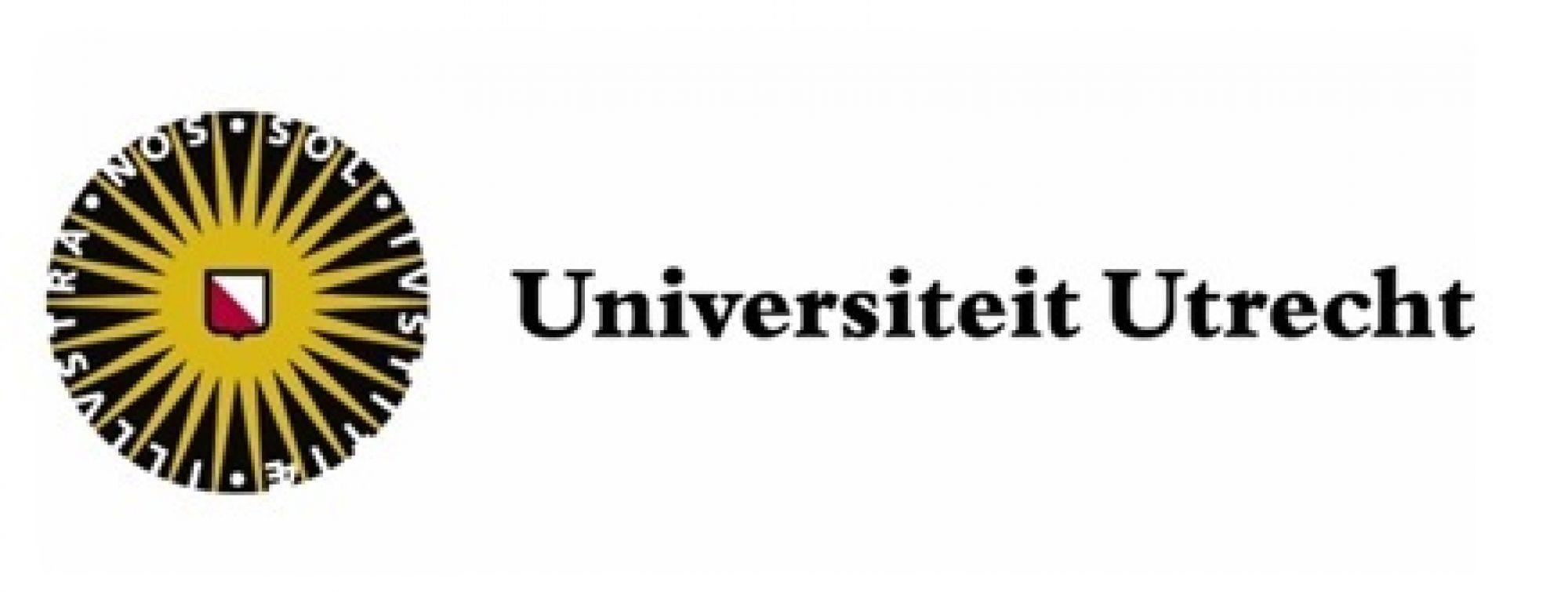Reflection on raising children improves family life
Millions of children in the rural areas of Africa grow up in poverty and amidst violence. Children who have lived in poverty the first years of their life, show reduced brain development and more often show signs of psychosocial problems such as anxiety, depression and aggression. Moreover, poverty inhibits their access to education and healthcare and increases risks of child labor, HIV infection and other forms of abuse and exploitation.
The crucial role of parents in the lives of their children
A life in poverty demands the utmost from people. Parents often feel powerless and communicate poorly with one another. Often, children become the victims of such family dynamics: they do not go to school (anymore) and often receive physical punishment. Many parents living in rural East-Africa moreover have had little to no education. Consequently, they tend to copy the parenting techniques they experienced in their own youth.
Parents and teachers are the most important people in the life of a child and have a deciding role in their wellbeing and future. By training parents, returning to the basis of family dynamics, we aim to positively impact the future of their children.
What is ICS doing in order to strengthen family relations and protect children?
- ICS educates local field trainers, who in turn provide training for parents and teachers in our project areas;
- For a duration of twelve months, parents get together weekly and, in group context, work on seven different modules on parenting;
- Parents generate new knowledge, reflect on their role in the upbringing of their child, share their experiences with each other and discuss the daily challenges of childrearing;
- Teachers get together three times and learn to recognize signs of child maltreatment and when needed, get the appropriate source of aid, and prevent school dropouts.

 Seven modules
Seven modules
During the meetings all sorts of parenting themes are brought up and being discussed. Parents feel supported to try out new skills on parenting. The Skilful Parenting training consists of seven different modules:
Effects Skilful Parenting scientifically proved
 In 2014 and 2015 two researchers from the University of Utrecht looked into the effects the training program had on families in Western Kenya. The results are particularly positive. The program has had a clear impact: parents feel more capable and self-confident and have become more aware of the supportive role they play in the social, emotional and mental development of their children. Communications between parenting partners and their children has changed as well, which has improved the interaction and cooperation among family members. Moreover, parents are using less physical punishment and more often choosing a positive alternative to correcting behavior in their children.
In 2014 and 2015 two researchers from the University of Utrecht looked into the effects the training program had on families in Western Kenya. The results are particularly positive. The program has had a clear impact: parents feel more capable and self-confident and have become more aware of the supportive role they play in the social, emotional and mental development of their children. Communications between parenting partners and their children has changed as well, which has improved the interaction and cooperation among family members. Moreover, parents are using less physical punishment and more often choosing a positive alternative to correcting behavior in their children.
Learn more on Skilful Parenting
ICS-SP is the local ngo that implements the Skilful Parenting program in Kenya and Tanzania. For more information on Skilful Parenting and Child Protection have a look at the website of ICS-SP.
Learn more on Skilful Parenting
